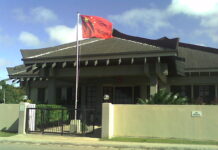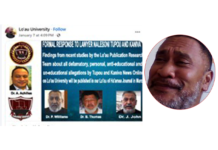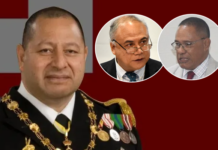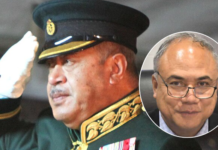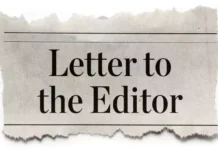EDITORIAL: Professor Siosiua Lafitani’s ongoing denial that Tonga’s 2010 political reform was not a change into a democratic form of government, despite significant evidence proving it to be the case, is a complete lie.
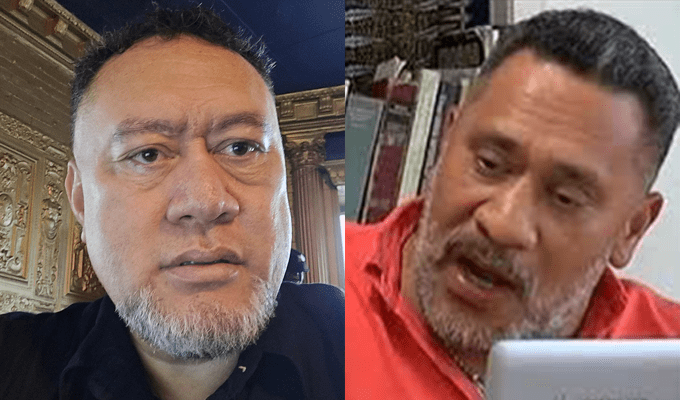
He has continued to attack Kaniva News, claiming that its comments and reports on the kingdom’s democracy were lying (”loi”).
He alleged that Kaniva News and other media personnel such as veteran Pacific Journalists Michael Field from New Zealand and Kalafi Moala from Tonga as well as Kele’a newspaper were lying (“nau talanoa ki he faka’amu / loi”) when they reported that there were undemocratic activities (‘ikai fakatemokalati”) in Tonga.
He previously made a similar attack against Kaniva, with some Tongan lawyers saying Tonga was not a “Pule’anga Fakatemokalati” (democratic form of government). He accused us of allegedly promoting unenlightened thinking (“fakakaukau fakapo’uli”) which he described as speculative (“fakanāfala”).
Posting on his Lo’au UniversityFacebook account recently, Professor Lafitani said in Tongan: ““Ne ‘ikai ke fai ha liliu fakatemokalati pe fakalepapulika he 2010, ko e liliu pe ia ke monomono mo fakamo’uihake ‘a e ngaahi konga fakatemokalati mo fakakonisitutone ne ‘osi ‘i he’etau konisitutone pe”
This translates into English as: “There was no democratic or republic change in 2010; it was just change made to mend and re-enact democratic and constitutional parts (Konga) which were already in our constitution”.
Lafitani also claimed that the term democracy was not written in Tonga’s Constitution, arguing that this was one of the reasons why he asserted that the political reform 2010 was not meant to be a change for democracy.
The Lo’au University professor also asserted that he was the first scholar to introduce the term “democracy” in Tonga during a speech delivered in 1988 at the University of ‘Atenisi. He said he did not mean to change Tonga to a democracy. He argued that there existed no record in newspapers or any public discourse in Tonga prior to that event that references democracy.
Democratic reforms
Tonga’s political reform 2010 was indeed a change to a more democratic system of governance.
The reform involved a significant change delegating the king’s executive powers to nominate ministers and operate the government to a Cabinet elected by the populace under the accountability of the Parliament.
The change serves as a pertinent illustration of governmental operations within a democratic framework, as the majority of Cabinet Ministers were elected to Parliament by their constituents rather than appointed by the monarch, which was the prior norm. This situation underscores the fundamental principle of democracy, which can be succinctly defined as “rule by the people.”
It is important to note that the monarch retains certain powers classified as executive in nature. Critics have viewed this as a significant shortcoming in the development of the constitution that was intended to transfer all of the king’s executive authorities to the Prime Minister, in accordance with the wishes of the late King George V.
Despite these issues, many proponents of democracy were thankful that the change had finally come into fruition. King George V maintained that he expected his successors to make the necessary changes as the new democratic government continued to evolve.
King George V democracy will
The late King George V clearly articulated, during an interview with Australian broadcaster Bruce Hill in 2010 that the political reform was a shift towards democratic governance.
Part of the king and Hill’s interview is copied verbatim below (click this link for the full interview):
“King George V: I think it’s a natural development of the original 19th century constitution. It’s an attempt to take the principles of that constitution and apply them in a 21st century idiom, which of course has to be democracy.
Bruce Hill: Is this something that you particularly support?
King George V: Yes! Yes, I ‘ve always wanted to do this for the country and it’s a very practical idea….”
Numerous media analyses and academic studies conducted both prior to and following the 2010 political reforms, including the works of Professor Guy Powels and Dr Christine Bogle confirmed that the 2010 political reform marked a shift from the status quo to a democratic system.
Introducing democracy
Professor Lafitani’s claim that he was the one who first introduced the idea of democracy to Tonga is not true. The Late ‘Akilisi Pōhiva, globally recognised with the Defender of Democracy title, was one of the pioneering advocates for democracy in Tonga. In 1981, he openly shared his views on transitioning the monarchy’s executive powers to a democratic system through his Matalafolaukai radio programme, doing so seven years prior to Lafitani’s alleged speech.
Additionally, Pōhiva’s Kele’a Newspaper, which he initiated as a newsletter in 1986—just two years before Lafitani’s speech claim—featured numerous articles highlighting his democratic beliefs.
Other than that, in 1975, Late Hu’akavameiliku Snr. the father of the current Hu’akavameiliku, appeared to be the first commoner to have submitted to the then King Taufa’ahau Tupou IV and his Cabinet a proposal of sweeping democratic changes. Late Prime Minister Pōhiva later said this was the foundation of his fight to bring democracy to Tonga.
Author Kenneth Bain quoted Dr Hu’akavameiliku Snr’s proposal in his book The New Friendly Islander: A Voice from Within.
Constitution and democracy
The Professor’s claim that the term democracy was not written in the Tongan constitution is untrue. There are Acts in the Tongan laws that clearly mention the word democracy and its essential mechanisms such as good governance, accountability and transparency.
Page seven of the Cabinet Manual says: “The constitutional framework of the Kingdom encompasses the Monarchy, representative democracy and the rule of law”.
Lack of academic rigour
Professor Lafitani’s arguments are problematic due to their inherent contradictions and paradoxical nature, as well as their reliance on unfounded claims. He alleged there was no democratic changes yet concludes in the same breath that certain democratic elements within the constitution were re-enacted in 2010.
His analysis lacks specific references to the clauses of the Constitution to clearly substantiate his claims. This makes it difficult to believe his arguments are based on established principles.
Professor Lafitani’s failure to directly quote or reference any of Kaniva’s articles in order to clarify his position while critiquing those works based on their merits reflects a notable deviation from the accepted standards of academic criticism.
Such standards require critics to provide credible evidence, such as facts or relevant examples, that directly support their claim so that we can see whether or not they demonstrate any valid reasoning and make a well-founded and convincing argument.
Instead, the arguments against Tonga being a democracy seem to be based on an unwavering loyalty to the monarchical system and traditional norms.

